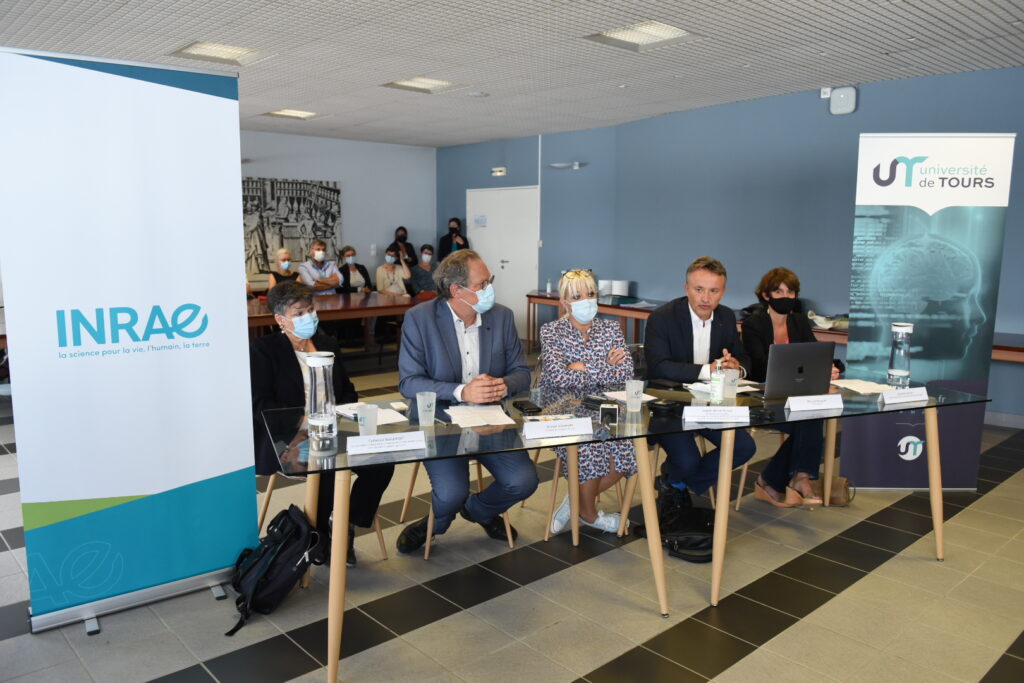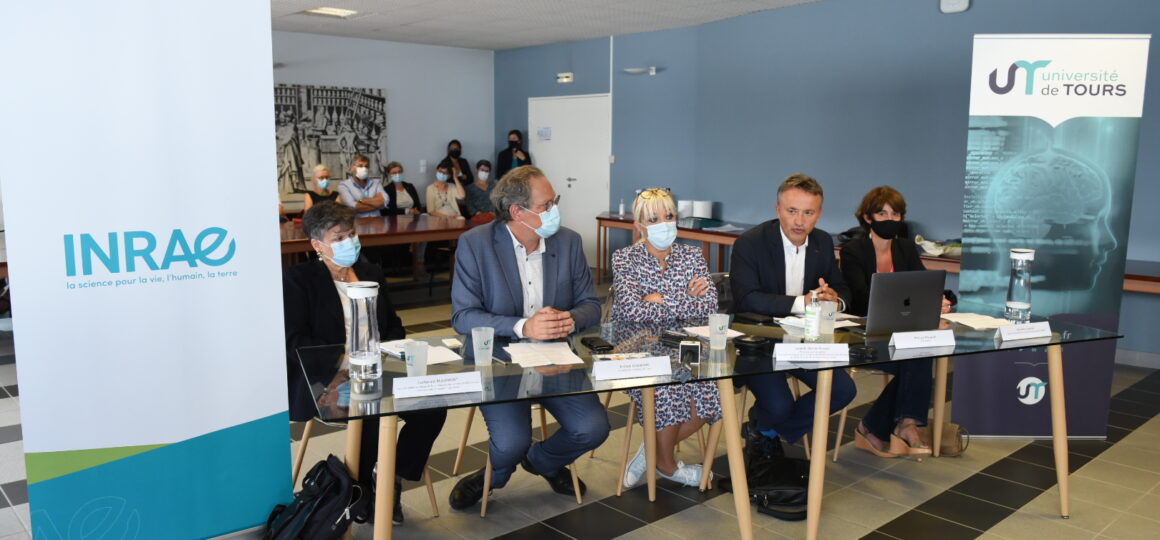A 100% French nasal vaccine against COVID-19 yields positive pre-clinical results
In contrast to intramuscular vaccines, only nasal vaccines are able to block the virus in the nose by inducing local immunity in the nasal mucosa, i.e. the portal of entry and multiplication of the virus. The vaccine candidate, developed by the BioMAP team, would take position as the eighth nasal vaccine currently starting clinical testing in the world, and the only one based on viral proteins in France. This SARS-CoV-2 protein vaccine candidate builds on the BioMap team’s expertise in mucosal vaccine design. In partnership with the biotech company Vaxinano, the team has already successfully developed an effective candidate vaccine to protect monkeys from toxoplasmosis. This stable, non-toxic and adjuvant-free nasal vaccine is based on a total protein extract from Toxoplasma gondii the infectious agent being produced by the team and further encapsulated in starch and lipid-based nanoparticles (Vaxinano technology).

©INRAE/Bertrand Nicolas
In a similar strategy, the SARS-CoV-2 vaccine protein component was designed and produced by the team, and then encapsulated by Vaxinano. The vaccine, consisting of the Spike protein with other viral proteins that are not prone to mutations, would protect vaccinated individuals regardless of the mutated circulating coronavirus variant strains. This vaccine was first tested in vivo in a pre-clinical mouse model. Two nasal applications, three weeks apart, induced a strong humoral immune response – in particular of the mucosal compartment with neutralising Immunoglobulin A, which are polyspecific, i.e. more permissive against variation of the Sars-CoV-2 – along with a cellular response in the nasal cavities and lungs. The protective efficacy of the vaccine was also assessed in terms of survival and absence of clinical signs after infection on vaccinated animals, 100% of individuals survived with no clinical signs (respiratory distress, weight loss, etc.) unlike the unvaccinated control group. Second, the candidate vaccine was tested for contagiousness in the established Syrian hamster model, which mimics the human pathophysiology of COVID-19, again providing striking results with no viral detection in the lungs and nose of vaccinated/infected animals while unvaccinated/infected animals showed a high levels of viral RNA in both lungs and nasal cavities. These results, highly predictive of the effectiveness of a vaccine in humans, allow us to predict that contagiousness between individuals is completely abolished.
An easily administered, non-invasive, vaccine as a first dose or a booster Technically, the vaccine will be administered by means of a small adapter placed at the end of a needle-less syringe, allowing an ideal diffusion within the nasal cavity. Currently, a device developed for this vaccine specifically for humans is being evaluated in collaboration with the Recipharm/Resyca group. Non-invasive and with minimal logistics requirement, this basic vaccination system would allow for a wider distribution to Europe and far beyond. Moreover, the vaccine is highly stable at room temperature and even longer at 4°C and thus would not imply the required restraining logistics mandatory to maintain cold chain integrity, unavailable in most countries of the world. This vaccine would therefore target unvaccinated populations to protect against severe and moderate forms of COVID-19 and could moreover be a booster for already vaccinated populations to prevent transmission of the virus.
A 100% French research and development consortium Based on these results, the research team will rely on the skills of companies based in France, which have already been identified, to develop its vaccine for future clinical trials:
-Vaxinano, based in Lille,
-GTP Bioways, a CDMO based near Toulouse,
-C.RIS Pharma, a CRO based in Saint Malo,
-Recipharm, a manufacturer based in Monts, near Tours.
The transition to the clinical phase, supported by the ANRS/ Maladies infectieuses émergentes, is scheduled for the second half of 2022, with the perspective to bringing the vaccine to market in 2023. The project has been made possible by the financial support of the ANR and the Centre-Val de Loire Regional Council, as well as by the commitment of all the partners mentioned.
|
Laboratories involved in the pre-clinical studies
|




COMMENTS ARE OFF THIS POST